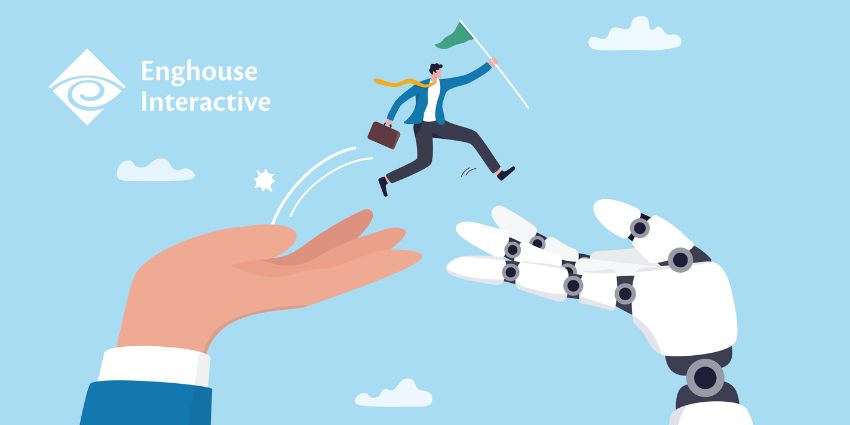A recent Forrester report has predicted that generative AI (GenAI) will “displace 100,000 frontline agents” in 2025.
The study surveyed voice of the customer (VoC) and customer experience professionals about the future of the CX industry, with the findings suggesting that the contact center outsourcing market is in danger of mass job cuts.
Described by Forrester as an “unseen behemoth,” on average, 62 percent of customer-facing industries outsource their contact center offerings, with the two largest providers in the sector employing almost one million people between them.
The current popularity of GenAI in the customer service space and its ability to automate basic queries will directly lead to job losses at these outsourcing enterprises, according to the report.
Despite what appear to be worrying signs for outsourcers, Forrester believes that those that act quickly will be able to use GenAI to their advantage.
Sharyn Leaver, Chief Research Officer at Forrester, explained how the explosion of GenAI led to businesses rushing to implement the tech without understanding how time-consuming the process would be.
“Given GenAI’s potential to transform marketing and customer experience, many brands eagerly experimented with the technology in 2024. But it soon became clear that this transformation is a long game,” she said.
In 2025, B2C marketing, digital, and CX leaders must build on lessons learned from this experimentation and focus on improving their data infrastructure to gain better customer insights.
As CX departments continue to get to grips with their GenAI transformations, the report advises outsourcers to prioritize performance-based models that can enhance automation and shift human workers to higher-value tasks.
While GenAI’s impact on the contact center outsourcing market was the major headline from the study, a number of other key predictions were also unearthed.
CX in 2025
The overall message from the report was the need for CX leaders and organizations to be bold.
While Forrester concedes that for the majority of brands, 2025 will be “another year of CX mediocrity,” those businesses that step forward instead of back will benefit from separating themselves from the pack.
However, as the below predictions illustrate, this is much easier said than done.
Cross Departmental Integration Will Grow
Respondents predict that one in five CX teams will integrate with design, research, and delivery teams to enhance their impact.
CX leaders recognize the need for deeper collaboration, with 41 percent citing interdepartmental cooperation as a top challenge, and 56 percent feeling ineffective at connecting customer feedback with behavioral and product data.
Despite these concerns, Forrester champions the strategy of embedding CX teams, claiming that it will allow organizations to infuse customer insights directly into products, services, and processes.
The report also advises that these partnerships will need to bridge skill gaps and align with broader organizational goals for continuous improvement and better outcomes.
CX Will Continue its CX “Score Obsession”
Only 20 percent of CX teams will shift from simply collecting feedback to making it actionable.
Under pressure from executives to show their contribution to CX goals, many teams remain focused on improving CX ratings, with 58 percent of companies linking CX metrics to incentives.
Indeed, even teams that try to move away from a metrics focus will struggle due to skill gaps, ineffective processes, and outdated technology.
Unfortunately, this results in an ongoing “score obsession” rather than true customer-centric improvement.
Despite 79 percent of CX teams lacking processes to act on insights and limited use of advanced tools like journey orchestration, the majority will continue prioritizing metrics over meaningful action, further feeding into the focus on scores rather than outcomes.
Less Tech is More
Surprisingly, considering the focus on AI-powered solutions across the CX market, those surveyed believe that one in four CX teams will replace underused tools with “good-enough” enterprise suites.
However, the report shows that, on average, CX teams use just four technologies but often rely only on basic features that overlap with existing enterprise tools.
Armed with this information, IT departments aiming to reduce redundant software costs, will scrutinize these tools.
Forrester argues that proactive CX leaders should adopt a function-first approach, making cuts themselves and settling for enterprise solutions for essential tasks like post-interaction surveys and conversation analytics.
In doing so, they will free up budget for more impactful technologies, enabling CX leaders to address key challenges, such as connecting CX improvements to business outcomes and acting on customer insights.







